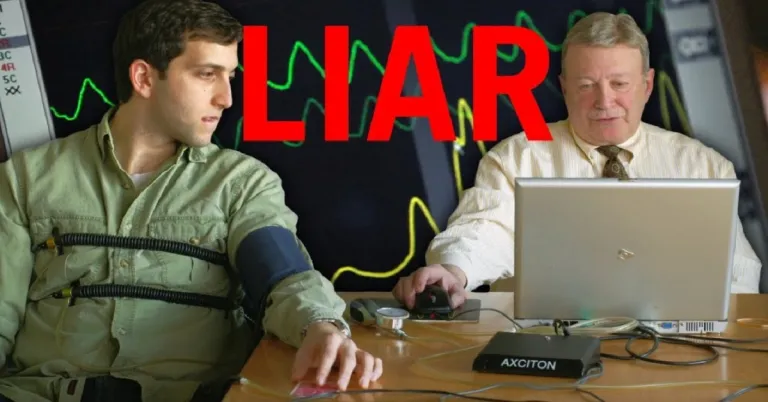A polygraph test, often known as a lie detector test, is an intriguing method used to measure honesty by analyzing physiological responses. Its application spans diverse fields, from law enforcement to corporate settings. While its effectiveness and ethics are often debated, the polygraph remains a critical tool for detecting truth in high-stakes situations.
This guide explores how polygraphs work, their applications, and their pros and cons, offering you a complete understanding of this fascinating technology. Whether you’re a skeptic or a believer, this article will provide valuable insights into the world of polygraphs.
The Basics: What Is a Polygraph Test?
A polygraph test records physiological responses, such as heart rate, breathing patterns, and pores and skin conductivity, while a person answers questions. The concept is simple: mendacity generally triggers involuntary physical reactions that vary from sincere responses.
The check isn’t pretty much detecting lies; it’s a diagnostic tool designed to provide investigators with extra context. Polygraph results can often be manual decisions but are hardly ever the sole determinant in felony or employment topics.
How Does a Polygraph Test Work?
The process of accomplishing a polygraph take a look at is methodical and based. First, the concern is attached to the polygraph device through sensors located on their body. These sensors tune physiological reactions, such as changes in pulse, respiration price, and perspiration stages.
The examiner starts offevolved with baseline questions like, “Is your call Alex?” or “Are you over 21?” These neutral queries establish a benchmark for straightforward responses. After that, more great questions are posed, frequently related to the unique investigation or challenge. The examiner cautiously video displays the problem’s physiological reactions for symptoms of pressure or deception.
Once the session ends, the examiner analyzes the amassed facts to stumble on patterns that can endorse dishonesty. However, the translation is subjective and requires knowledge.
Common Applications of Polygraph Tests
Polygraph assessments are used across numerous sectors for different functions:
Law Enforcement Investigations
Police and investigative companies use polygraphs to validate claims, assess witness credibility, or slender down suspects. While they don’t directly establish guilt, they serve as a supporting tool in criminal investigations.
Corporate Employment Screening
In a few industries, particularly finance or security, polygraph tests are a part of the hiring process. Employers may use them to evaluate a candidate’s integrity and reliability.
National Security Clearances
Government organizations frequently require polygraph screenings for roles related to categorized records. These exams help decide whether or not an individual may be trusted with touchy facts.
Benefits of Polygraph Testing
Polygraph tests provide several benefits, making them a precious investigative device. They provide quick insights into a topic’s honesty, which can streamline investigations or hiring selections. The very know-how that a take look at is being conducted can set off people to be extra trustworthy, reducing the want for extended thinking.
Additionally, polygraphs supply immediate consequences, allowing for faster conclusions in high-stakes conditions. This efficiency may be vital for companies and agencies in saving time and resources.
Challenges and Drawbacks
Despite their blessings, polygraph assessments have boundaries. One enormous disadvantage is their susceptibility to inaccuracies. Factors like stress, clinical conditions, or maybe certain medicinal drugs can affect the effects, leading to fake positives or negatives.
Moreover, polygraph consequences are not universally frequent in felony complaints. Courts frequently view them as supplementary in place of conclusive proof due to their reliance on physiological reactions, which can vary widely amongst people.
Ethical worries additionally arise with polygraph use. The strain related to taking such a check can be overwhelming, potentially affecting overall performance and equity. This makes it critical to stabilize the blessings with the potential pitfalls when considering polygraph checking out.
The Role of Ethical Considerations
Using polygraph exams ethically is crucial to ensuring equity and reliability. Participants need to always offer knowledgeable consent and understand the implications of the test. Additionally, the translation of outcomes should be carried out through trained experts to keep away from misjudgments.
Organizations and organizations must additionally understand that polygraphsit; are not definitive and need to never be the sole foundation for essential decisions. When used responsibly, they could complement different investigative or evaluative strategies successfully.
Conclusion
A polygraph take a look at is a powerful but complex device that has observed programs in a couple of fields, from criminal investigations to corporate hiring. While it offers short and precious insights, it’s no longer without its demanding situations. Understanding its barriers and moral implications is crucial for its proper use.
For those thinking about a polygraph, take a look at it, it’s a fascinating technique that, whilst used responsibly, can aid in uncovering the facts without entirely counting on subjective judgment.








